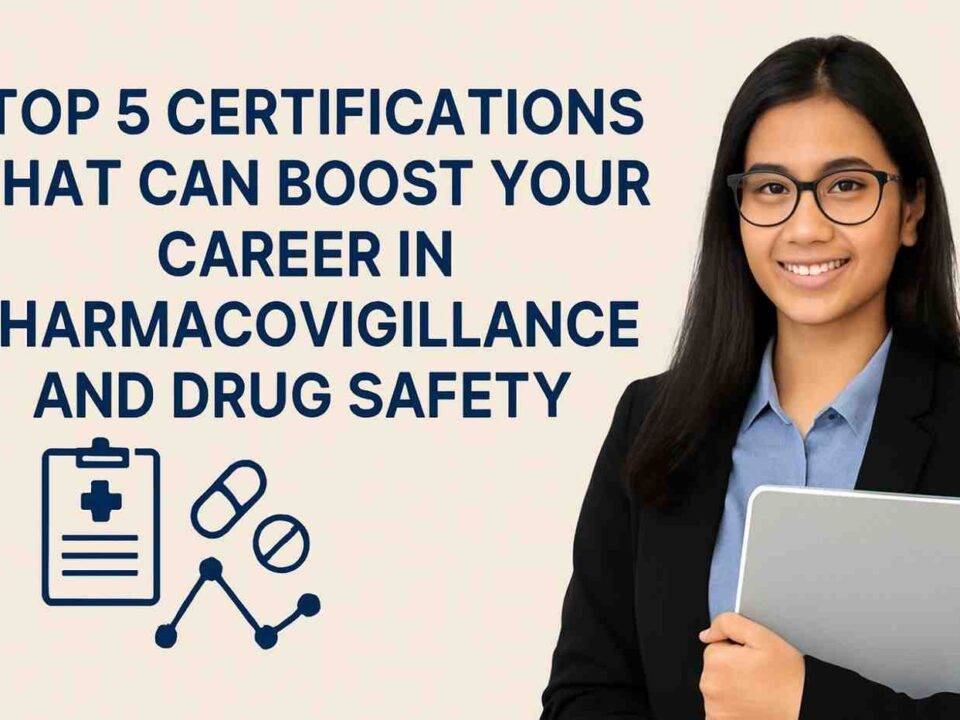Patient safety in clinical trials has become prominent in the priorities of clinical research organizations (CRO) and other sponsors. In lieu of this prominence, pharmacovigilance or drug safety has become a by-word for complying with regulatory agencies. Pharmacovigilance is the science of drug-related risks that can harm patients.
Since pharmacovigilance requires knowledge and skills in a wide variety of areas such as pharmacology, epidemiology, clinical medicine, data management, drug legislation, etc., obtaining specialized training will be difficult. Thus an aspiring drug safety professional will often require constant updating of his or her pharmacovigilance skill sets while continuously performing their job.
 Important skills required for a drug safety professional are:
Important skills required for a drug safety professional are:
Education and Scientific Knowledge
A life sciences degree is a mandatory educational requirement for any person aspiring to begin a career as a drug safety professional. Persons with knowledge of medical terminology, or having worked as pharmacists or nurses are highly sought after by pharmacovigilance firms for drug safety roles in case processing. Knowledge about the business and marketing aspects of the pharmaceutical industry are also of great importance for any aspiring drug safety professionals
Information Management Skills
Drug safety professionals will need to be capable enough to handle large complex volumes of data that are generated during clinical trials. They need to be able to organize multifaceted data about any adverse events due to the drugs in use and be able to retrieve any data when asked for. Knowledge or skill in database software or other computer tools in data management is highly advantageous. Being accurate and responsible is also an asset because producing incorrect information can result in serious consequences to patient lives.
Communication Skills
Working professionals in pharmacovigilance need to clearly and effectively communicate their ideas and their delegation of work to their colleagues. They need to report any safety-related information promptly to the concerned departments. Team management skills are also important. An ability to question recorded safety data without bias or prejudice is also a highly relevant skill.
Ethical Approach
Drug safety professionals need to have a sound understanding of company policies regarding ethical practices. They need knowledge of the level of compliance required by regulatory agencies. They need to be aware of what is considered ethical and what is not with respect to drug safety rules. They should also appreciate and adhere to the confidentiality agreements between patients, sponsors, and medical professionals.
Legal and regulatory knowledge
Laws prescribed by agencies like the Food and Drugs Administration, World Health Organization, etc need to be known by pharmacovigilance professionals. Data protection legislation and copyright rules need to be known too.
Foreign Language Skills
Current trends in the pharmacovigilance industry indicate that with regulations being put in place in many countries, pharmacovigilance professionals will require interacting with their counterparts in other countries. Knowing another language apart from English might not necessarily help with written reports, but will help with interacting with hospital staff and physicians of other countries.
REFERENCES
https://www.ncbi.nlm.nih.gov/pmc/articles/PMC3038526/
https://www.linkedin.com/pulse/competency-areas-pharmacovigilance-professionals-pragya-medical
http://www.pipaonline.org/write/MediaManager/Training/Competency_Areas_for_Pharmacovigilance_Professionals_May_2013.pdf
{{cta(’66d11a34-20b9-40f5-9fea-a15f23f1c919′)}}



